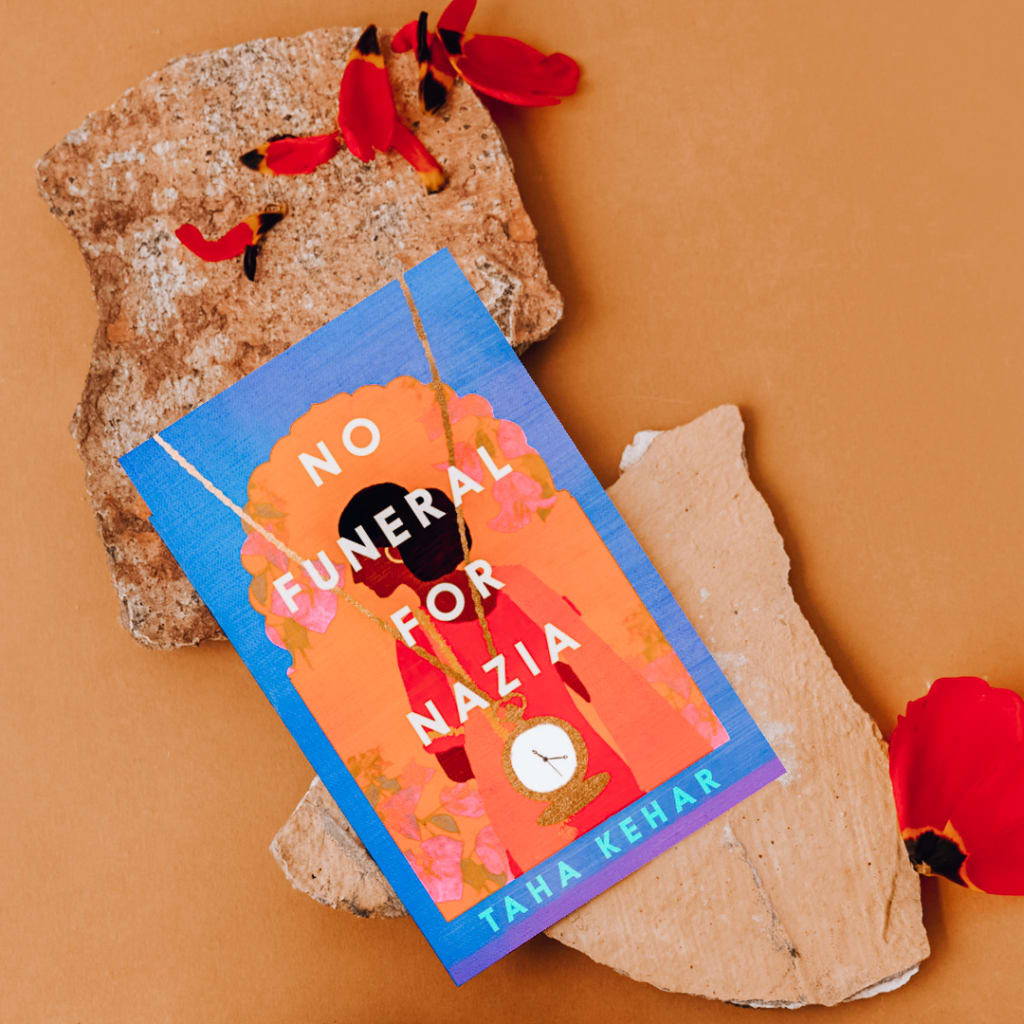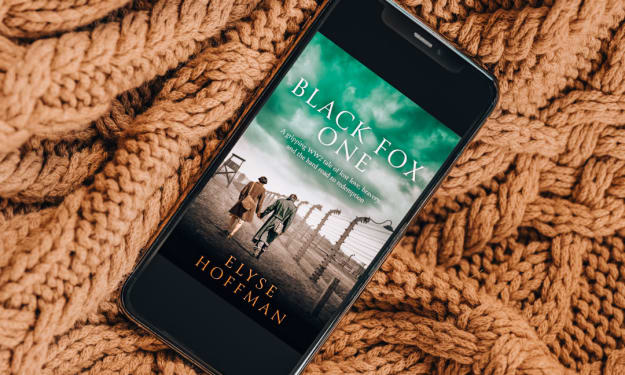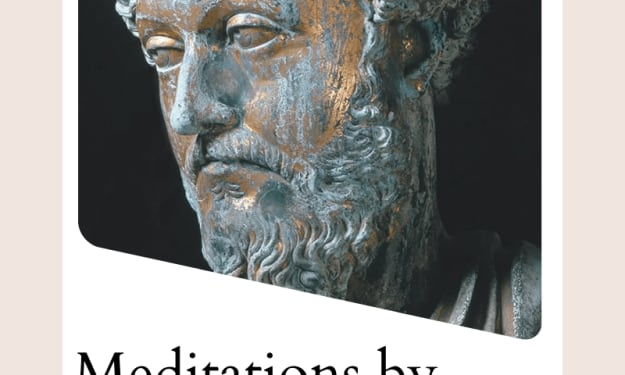Book Review and Author Interview: No Funeral for Nazia by Taha Kehar
A striking and inventive exploration of what death can mean for both the deceased and those left behind

Nazia Sami is a celebrated author, but perhaps her greatest plot twist is yet to be produced. In her final days, she wields a pen one last time as she fills her diary with instructions for her sister, Naureen, and writes six letters to be delivered after her death.
There is to be no funeral for Nazia. Instead, only six invitees are asked to attend a party, one of whom is a mystery guest. Over the course of an extraordinary evening, secrets are revealed, pasts reconsidered, and lives are forever changed.
Perfect for fans of MOHSIN HAMID and KAMILA SHAMSIE, No Funeral for Nazia is a striking and inventive exploration of what death can mean for both the deceased and those left behind.
GENRE: Contemporary Mystery Fiction / Literary Fiction
PURCHASE LINK: Neem Tree Press | Amazon
ABOUT THE AUTHOR: Taha Kehar is a novelist, journalist and literary critic. A law graduate from SOAS, London, Kehar is the author of three novels, No Funeral for Nazia (Neem Tree Press, 2023), Typically Tanya (HarperCollins India, 2018) and Of Rift and Rivalry (Palimpsest Publishers, 2014). He is the co-editor of The Stained-Glass Window: Stories of the Pandemic from Pakistan. Kehar has served as the head of The Express Tribune’s Peshawar city pages and bi-monthly books page, and worked as an assistant editor on the op-ed desk at The News. Kehar’s essays, reviews and commentaries have been published in The News on Sunday, The Hindu and South Asia magazine and his short fiction has appeared in the Delhi-based quarterly The Equator Line, The Aleph Review, the biannual journal Pakistani Literature and the OUP anthology I’ll Find My Way. Two of his short stories appeared in an anthology titled The Banyan and Her Roots, which has been edited by the British writer Jad Adams. In 2016, he guest-edited an issue of The Equator Line, titled ‘Pakistan: After The Stereotypes’, that focused on new writing from Pakistan. Kehar curates Tales from Karachi: City of Words, an Instagram e-anthology that publishes flash fiction from and about Karachi. He recently compiled and edited the first print anthology of the initiative titled Tales from Karachi (Moringa, 2021). Based in Karachi, he teaches undergraduate media courses.
Interview

Thanks to the lovely Yaz of Neem Tree Press I had the privilege of interviewing the author himself! You can follow him over the following social media platforms: Instagram | Facebook | Twitter
What made you decide to take the traditional publishing route?
I opted for the traditional route to ensure that my work reaches a wider audience.
Tell us a fun story about your publication journey!
I'm not sure if this can be considered fun, but it was intriguing and insightful. My publisher asked me to prepare a glossary to explain Urdu words as well as cultural and political references in No Funeral for Nazia that would be unfamiliar to Western readers. At first, I was reluctant to do so because the practice is frowned upon in some literary and academic circles in South Asia. When I started working on the glossary, I realised that so many Urdu words were being distorted through common usage.
How about a horror story about your author life?
Almost a decade ago, I sent my manuscript to a literary agency. They responded with a perfunctory "No, thanks". While I was offended by their reply all those years, I now see it as a means of keeping myself grounded.
What do you think is the best thing about being an author?
To be a good fiction writer, you have to observe people and understand their motivations. Teaching yourself how to understand people is the best part of an author's journey.
Who do you think you inspire? If not, who and what do you want to inspire?
I don't seek to inspire anyone as a person. My role as a fiction writer is to produce stories that will hopefully inspire people to think about life's experiences in a different way.
What keeps you up at night?
The fear that there's an uncorrected typo in one of my books or articles.
What character archetype would you be if you were a character in a book, movie or TV series?
Either a caregiver or a sage.
If you were a character in a book, movie or TV series, what would be your catchphrase or famous line or popular expression?
"If only you'd listened to me..."
What food or drink best describes you?
A salad bowl (I've got some variety, but it's all still raw)
If you were cursed to only be able to sing ONE song in karaoke for the rest of your life, what would you like it to be and why?
Sonny and Cher's I Got You Babe
What else do you enjoy doing other than reading and writing?
I enjoy long, therapeutic walks, watching webseries and engaging in lengthy political discussions.
What do you consider as your weakness as a writer, and what have you done to overcome it?
I prefer to show rather than tell. I'm thinking of writing a novel that tells more than it shows.
Who are some of your favorite authors?
Anita Desai, Arundhati Roy and Armistead Maupin
Any book recommendations?
Zeeba Sadiq's 38 Bahadurabad
Anything else you want to tell your fans, our readers, and the writing/reading/blogging community at large?
Thank you for giving No Funeral for Nazia a chance. I hope you enjoy the novel.
Review
I have not read a novel like this in a while, and I truly enjoyed it! I picked this up because I like reading about stories that tackle death and grief, plus I was curious about the "plot twist" promised by the blurb. I was not disappointed.
I loved the complexity of the characters and how their lives intertwined with Nazia. There were jaw-dropping moments and reveals I didn't see coming. The level of "drama" in the characters' pasts could've gone overboard and turned even soap opera-like, but Taha's writing style kept things grounded and real. They could be real people, real events, real reactions to the someone's passing. I thought back to what the author told me when I got to interview him — that his role as a fiction writer was to produce stories that will hopefully inspire people to think about life's experiences in a different way — and he managed to achieve that with me with this novel.
The omniscient POV did throw me off a little in the beginning, but only because I'm so used to multi-POV SFF. Barring that, the prose is beautiful, while still being easy to grasp and internalize. The novel also gave me insights on Pakistani culture and society, which I admittedly don't know a lot about, so for that, I am grateful.
This part of the blurb sums up the novel best: a striking and inventive exploration of what death can mean for both the deceased and those left behind. If that's your cup of tea, as well as character-driven stories, I highly recommend this book!
My Rating: ⭐️⭐️⭐️⭐️️
About the Creator
Marie Sinadjan
Filipino spec fic author and book reviewer based in the UK. https://linktr.ee/mariesinadjan • www.mariesinadjan.com






Comments
There are no comments for this story
Be the first to respond and start the conversation.